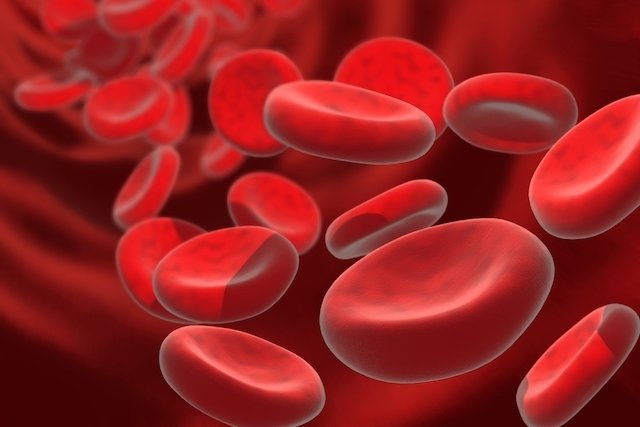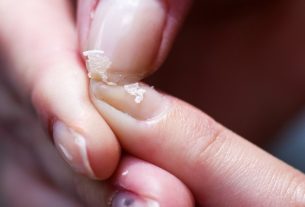Autoimmune hemolytic anemia (AIHA) is a type of anemia in which abnormal antibodies attack red blood cells, causing their destruction and symptoms such as tiredness, paleness, dizziness and yellowing of the skin and eyes.
Although it is not always possible to identify its cause, autoimmune hemolytic anemia can arise due to dysregulation of the immune system after an infection, due to autoimmune diseases such as lupus or rheumatoid arthritis, use of some medications and even cancer.
If you suspect autoimmune hemolytic anemia, it is important to consult a hematologist or general practitioner to confirm the diagnosis. Although there is no cure, anemia can be controlled with the use of medications, such as corticosteroids and immunosuppressants, and even surgery.

Main symptoms
The main symptoms of autoimmune hemolytic anemia are:
- Weakness;
- Pallor;
- Dizziness;
- Tiredness;
- Somnolence;
- Indisposition;
- Accelerated heart;
- Shortness of breathe;
- Abdominal swelling;
- Yellow skin and eyes;
- Dark urine, the color of Coca-Cola.
These symptoms are similar to other types of anemia. Therefore, if you suspect autoimmune hemolytic anemia, it is important to consult a hematologist or general practitioner to confirm the diagnosis and initiate the most appropriate treatment. See more symptoms that may indicate anemia.
Possible causes
Autoimmune hemolytic anemia is caused by the production of abnormal antibodies that attack red blood cells, leading to their destruction, which is called hemolysis. This can happen due to some diseases, such as lupus, rheumatoid arthritis, lymphoma and leukemia, or due to the use of some medications, such as antibiotics, but it does not always have a specific cause.
Furthermore, autoimmune hemolytic anemia can also appear after infections, such as those caused by the Epstein-Barr virus or Parvovirus B19, or by bacteria such as Mycobacterium pneumoniae or Treponema pale. Check out other causes of anemia.
How to confirm the diagnosis
The diagnosis of autoimmune hemolytic anemia is confirmed by a hematologist or general practitioner taking into account the symptoms and test results such as:
- Blood countto identify anemia and observe its severity;
- Immunological tests, such as the direct Coombs test, which checks the presence of antibodies attached to the surface of red blood cells. Understand what the Coombs test means;
- Blood reticulocyte countwhich indicates how the body is trying to compensate for the destruction of red blood cells, normally being elevated in cases of hemolytic anemia;
- Measurement of total bilirubin and fractions, which may be altered, especially indirect bilirubin. Know what it is for and when the bilirubin test is indicated;
- Peripheral blood smearan exam that allows specific changes in red blood cells to be identified;
- LDH dosagewhich usually increases in the blood when red blood cells are destroyed.
The doctor may also order other blood tests, such as iron, vitamin B12 and ferritin levels, which are important to differentiate autoimmune hemolytic anemia from other anemias. Find out about other tests that confirm anemia.
Hot and cold autoimmune hemolytic anemia
Autoimmune hemolytic anemia can be classified as hot or cold, depending on the type of antibody that attacks red blood cells. Warm autoimmune hemolytic anemia is the most common, being caused by IgG antibodies. Cold autoimmune hemolytic anemia is caused by IgM antibodies.
How the treatment is carried out
The treatment of autoimmune hemolytic anemia may involve the use of medications such as corticosteroids, immunosuppressants and immunomodulators. Furthermore, in more serious cases, blood transfusions may also be indicated to control anemia.
Surgery to remove the spleen, known as splenectomy, can sometimes also be performed, especially when other treatments are not effective. See other indications for splenectomy.
Furthermore, when the cause of autoimmune hemolytic anemia is identified, whenever possible, its treatment is also important for controlling the anemia.
Is there a cure for autoimmune hemolytic anemia?
Autoimmune hemolytic anemia has no cure, however, the destruction of red blood cells can be controlled through appropriate treatment. However, even when treated properly, anemia can sometimes return, especially if it was severe at the beginning of the illness.
Bibliography
- LIEBMAN, Howard A; WEITZ, Ilene C. Autoimmune Hemolytic Anemia. . . . North Am Clin Med. Vol.101, n.2. 351–359,
- HILL, Anita; HILL, Quentin A. Autoimmune hemolytic anemia. Hematology Am Soc Hematol Educ Program. Vol.2018, n.1. 382–389, 2018
- BRODSKY, Robert A. Warm Autoimmune Hemolytic Anemia. N Engl J Med. Vol.381, n.7. 647-654, 2019
- STATPEARLS. Hemolytic Anemia. 2022. Available at: <https://www.ncbi.nlm.nih.gov/books/NBK558904/>. Accessed on 16 Dec 2022
- SARA DANIELA CABETE MARTINS. HEMOLYTIC ANEMIA: CLINICAL, DIAGNOSTIC AND THERAPEUTIC – A CRITICAL REVIEW. Thesis for completion of the Integrated Master’s Degree in Medicine, 2014. Faculty of Medicine of Coimbra.

Sign up for our newsletter and stay up to date with exclusive news
that can transform your routine!
Warning: Undefined array key "title" in /home/storelat/public_html/wp-content/plugins/link-whisper-premium/templates/frontend/related-posts.php on line 12
Warning: Undefined array key "title_tag" in /home/storelat/public_html/wp-content/plugins/link-whisper-premium/templates/frontend/related-posts.php on line 13



